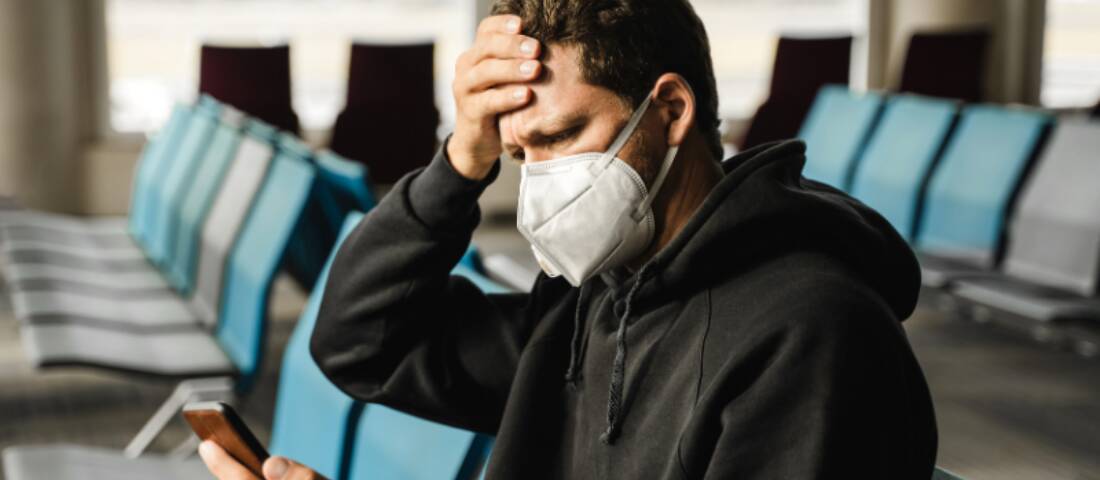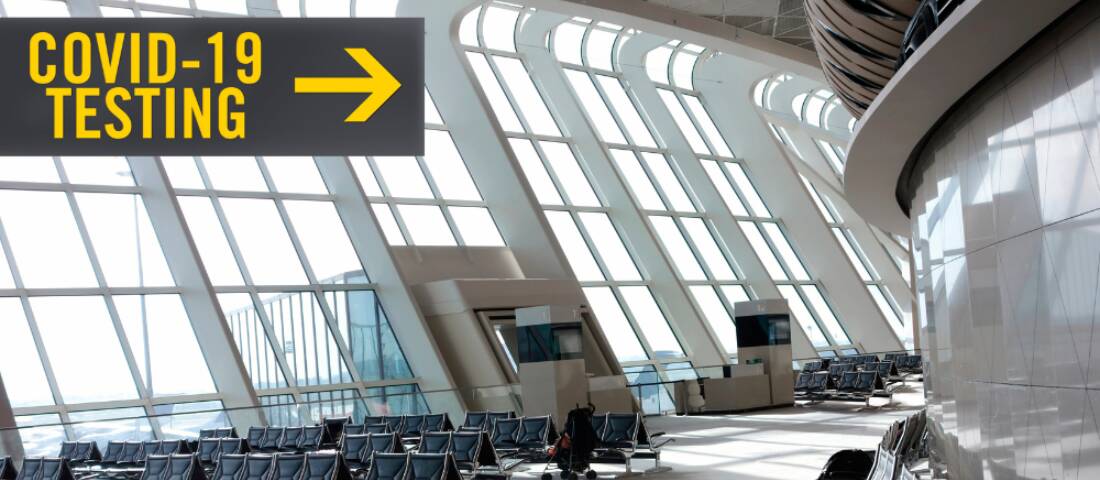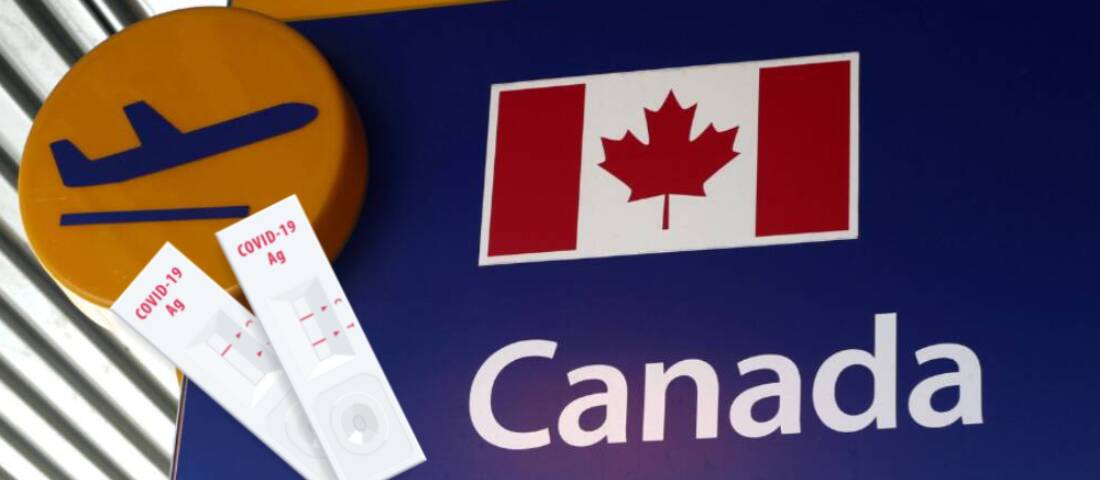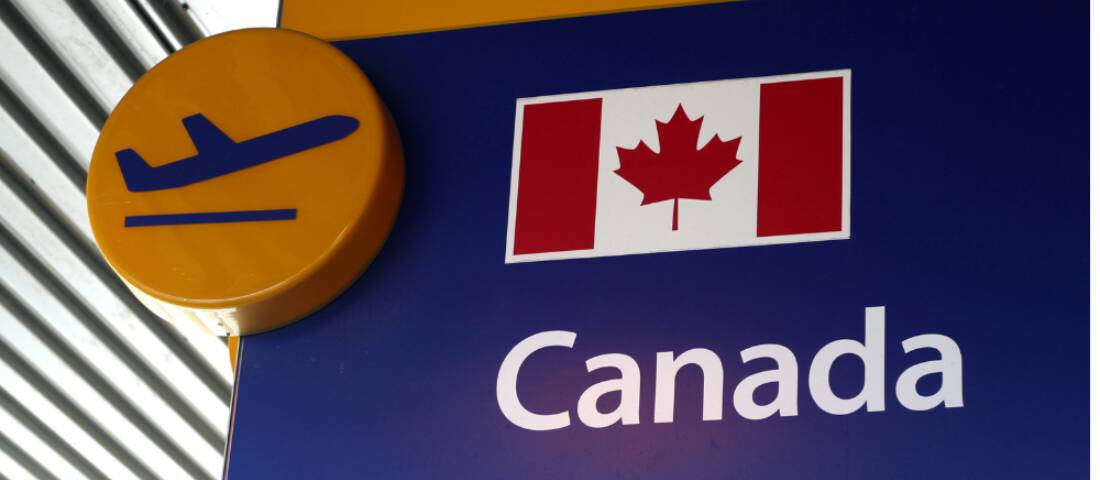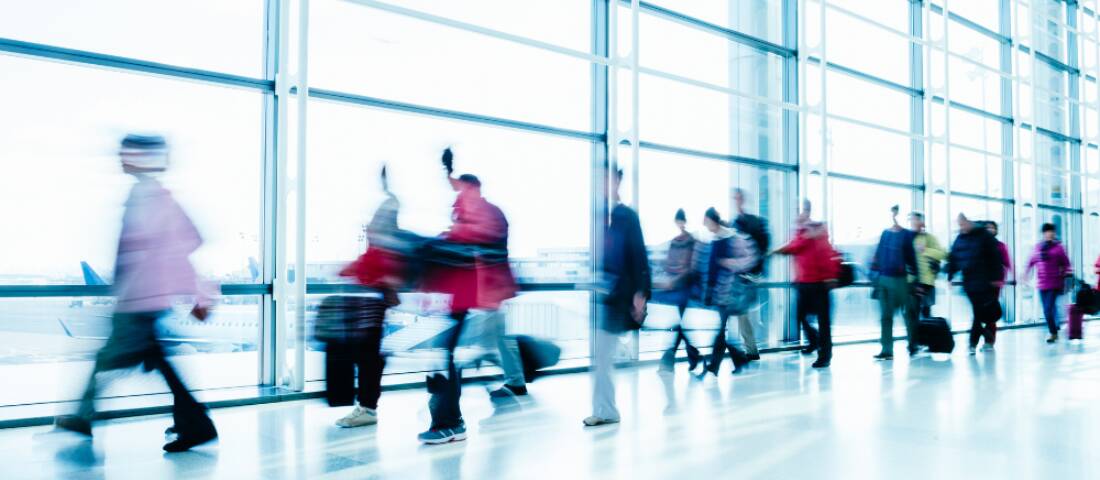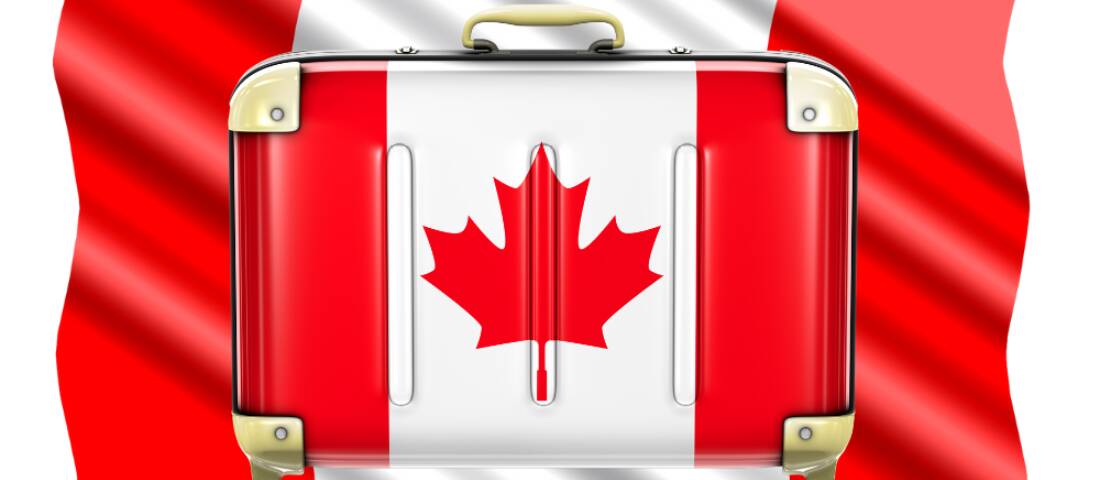Canada has issued clear exemptions to the new quarantine travel restrictions that become effective on February 22, 2021. The quarantine travel exemptions are for pre and post-entry covid-19 testing requirements, quarantine exemptions and exemption from the 3-day hotel stopover. The Public Health Agency of Canada issued the new quarantine travel exemptions in an announcement on February 26.
Who Is Exempt From Travel Quarantines?
You may be exempt from the mandatory quarantine requirements under certain conditions, including if you:
- provide essential services
- maintain the flow of essential goods or people
- are receiving medical care within 36 hours of entering Canada (non-related to COVID-19)
- regularly cross the border to work
- live in an integrated trans-border community
There are strict requirements you must follow even if you are exempt from quarantine. You must:
- wear a mask at all times when in public spaces
- maintain a list of all close contacts for your first 14 days in Canada
Although your reason for entering Canada may fall under an exemption, you may still have to follow certain provincial and territorial restrictions (which may include quarantine), depending on your destination. Being exempt from quarantine does not mean you’re exempt from the pre-boarding test requirements.
CBSA Cross-Border Enforcement
- The Canada Border Services Agency (CBSA) officer makes the final determination on exemptions are holding the position that to be exempt from quarantine, one must cross daily as a result of the latest restrictions.
- Airlines cannot deny boarding for individuals without a booking.
CBSA officers do not have the discretion to exempt travelers from quarantine or testing that all rules are explicitly stated within the Order in Council:
- "The traveller must cross the border regularly to go to their normal place of employment and demonstrate a regular pattern of travel, which is generally defined as daily or weekly. The nature of their work does not impact this assessment."
- Cross-border travel to go to a normal place of employment, not coming into contact with vulnerable people aged 65 or older. Weekly or bi-weekly frequency is required
Exemption from Pre-Entry Covid-19 Test By Air
There are only a limited number of exceptions where an individual is not required to show proof of a negative test:
- Resolved COVID-19 infection - persons who have molecular test proof to show they had a positive COVID-19 test taken between 14-90 days before travel
- Children - children who are four years of age or younger (children who are five on the day of their travel must have proof of a negative COVID-19 test)
- Transit through Canada - transiting passengers who are only flying through Canada to reach another country
- Medical and Health Care
•Medical treatments- persons who must leave and return to Canada regularly to receive essential medical services in another country. One person may accompany them. They must have:
• written evidence from a licensed health care practitioner in Canada indicating services or treatments outside Canada are essential; and
• written evidence from a licensed health care practitioner in the foreign country indicating services or treatments were provided in that country
Essential Work Considered Exempt Under the Emergency Orders
- Essential service providers as determined by the Chief Public Health Officer
- Emergency services – persons who are:
- firefighters, peace officers, and paramedics, who return from providing such services in another country and are required to provide their services within 14 days of their return to Canada
- permitted to work in Canada under paragraph 186(t) of the Immigration and Refugee Protection Regulations who enter for the purpose of providing those services
- Government Officials – employees of the Government of Canada or a foreign government, including border services officers, immigration enforcement officers, law enforcement and correctional officers, who are escorting individuals travelling to Canada or from Canada pursuant to a legal process such as deportation, extradition or international transfer of offenders.
- Law enforcement officer, border enforcement officer, or immigration enforcement officer - Officials of the Government of Canada, a provincial or a foreign government, including law enforcement, border enforcement, and immigration enforcement officers, who enter Canada for the purposes of law, border or immigration enforcement, or national security activities that support active investigations, ensure continuity of enforcement operations or activities, or transfer information or evidence pursuant to, or in support, of a legal process, and who are required to provide their services within 14 days of entry and have reasonable rationales for the immediacy of the work and the inability to plan for a 14 day quarantine;
- Crew members - a person who:
- is a crew member as defined in subsection 101.01(1) of the Canadian Aviation Regulations or a person who enters Canada only to become such a crew member
- is a member of a crew as defined in subsection 3(1) of the Immigration and Refugee Protection Regulations who is re-entering Canada
- is re-entering Canada after having left to undertake mandatory training relating to the operation of a vehicle
- Canadian Armed Forces - A member of the Canadian Armed Forces who enters Canada for the purpose of performing their duties
- Visiting forces - Visiting force aircrew entering Canada for the purpose of performing mission-essential duties as a member of that force
- Other Special Circumstances
• National interest - A person or member of a group whose presence in Canada, as determined by the Minister of Health, is in the national interest.
• Person denied entry to another country - Canadian citizens, permanent residents of Canada and persons registered as an Indian under the Indian Act, who were denied entry to a country or territory and who must subsequently board a flight destined to Canada (direct back).
• Refugee Protection - Persons who enters Canada from the United States for the purpose of making a claim for refugee protection
• Extraordinary and unforeseen circumstances –Exigent hardship consular cases for Canadian citizens, permanent residents, or persons with status under the Indian Act, as determined by the Minister of Foreign Affairs
• Disaster response support as determined by the Minister of Transport or Minister of Public Safety
Exemption From Pre-Entry Covid-19 Test By Land
There are only a limited number of exceptions where an individual is not required to show proof of a valid test result:
General:
- persons who have molecular test proof to show they had a positive COVID-19 test taken between 14-90 days before travel
- children who are four years of age or younger (children who are five on the day of their travel must have proof of a negative COVID-19 test)
Medical and health care
- Medical treatments - persons who must leave and return to Canada regularly to receive essential medical services in another country. One person may accompany them. They must have:
- written evidence from a licensed health care practitioner in Canada indicating services or treatments outside Canada are essential; and
- written evidence from a licensed health care practitioner in the foreign country indicating services or treatments were provided in that country
Essential work considered exempt under the Emergency Orders
- Essential service provider as determined by the Chief Public Health Officer
- Trade and Transportation –
- persons in the trade or transportation sector who are important for the movement of goods or people, including truck drivers and crew members on any aircraft, shipping vessel or train, and that cross the border while performing their duties or for the purpose of performing their duties
- Frequent cross border workers – persons who must cross the border regularly to go to their normal place of employment, including critical infrastructure workers (Energy and Utilities, Information and Communication Technologies, Finance, Health, Food, Water, Transportation, Safety, Government and Manufacturing), provided they do not directly care for persons 65 years of age or older within the first 14 days after their entry to Canada.
- Emergency services
- including firefighters, peace officers, and paramedics, who return from providing such services in another country and are required to provide their services within 14 days of their return to Canada
- a person permitted to work in Canada under paragraph 186(t) of the Immigration and Refugee Protection Regulations who enters for the purpose of providing those services
- Government Officials – employees of the Government of Canada or a foreign government, including border services officers, immigration enforcement officers, law enforcement and correctional officers, who are escorting individuals travelling to Canada or from Canada pursuant to a legal process such as deportation, extradition or international transfer of offenders.
- Law enforcement officer, border enforcement officer, or immigration enforcement officer - Officials of the Government of Canada, a provincial or a foreign government, including law enforcement, border enforcement, and immigration enforcement officers, who enter Canada for the purposes of law, border or immigration enforcement, or national security activities that support active investigations, ensure continuity of enforcement operations or activities, or transfer information or evidence pursuant to, or in support, of a legal process, and who are required to provide their services within 14 days of entry and have reasonable rationales for the immediacy of the work and the inability to plan for a 14-day quarantine;
- Canadian Armed Forces - A member of the Canadian Armed Forces who enters Canada for the purpose of performing their duties
- Visiting forces - Visiting force aircrew entering Canada for the purpose of performing mission-essential duties as a member of that force
Transborder, Remote Cross-Border or Geographically-Constrained Communities
- A person who enters Canada within the boundaries of an integrated transborder community that exists on both sides of the Canada-United States border and who is a habitual resident of that community, if entering Canada is necessary for carrying out an everyday function within that community; such as buying groceries or gas when the community access is in Canada, such as the Akwesasne community.
- A person who enters Canada if the entry is necessary to return to their habitual place of residence in Canada after carrying out an everyday function (such as getting groceries, going to work, or seeing a doctor) that, due to geographical constraints, must involve entering the United States.
- A habitual resident of the remote communities of Northwest Angle, Minnesota or Hyder, Alaska who enters Canada only to access necessities of life from the closest Canadian community where such necessities of life are available and
- A habitual resident of the remote communities of Campobello Island, New Brunswick or Stewart, British Columbia who enters Canada after having entered the United States only to access necessities of life from the closest American community where such necessities of life are available.
- Residents of Point Roberts, Washington transiting through Canada to return to their habitual residence or to access the mainland United States.
Cross-Border Students and People Driving Them
- A student who is enrolled at an approved designated learning institution, who attends that institution regularly and who enters Canada to go to that institution, as long as the government of the province and the local health authority of the place where that listed institution is located have indicated to the Public Health Agency of Canada that the listed institution is approved to accommodate students who are excepted from paragraph 3(1)(a) and section 4.
- A driver of a vehicle who enters Canada to drop off or pick up a student who is attending an approved designated learning institution, as long as the driver only leaves the vehicle while in Canada, if at all, to escort the student to or from the listed institution and they wear a well constructed, well-fitted mask while outside the vehicle.
- A student who is enrolled at an educational institution in the United States, who attends that educational institution regularly and who enters Canada to return to their habitual place of residence after attending that educational institution, if they will not directly care for persons 65 years of age or older within the 14-day period that begins on the day on which the person enters Canada.
- A driver of a vehicle who enters Canada after dropping off or picking up a student who is enrolled at an educational institution in the United States at that institution, and who enters Canada to return to their habitual place of residence after dropping off or picking up the student from that institution, as long as the driver only leaves the vehicle while outside Canada, if at all, to escort the student to or from the institution and they wore a well constructed, well-fitted mask while outside the vehicle.
Cross-Border Custody Arrangements
- A dependent child who enters Canada under the terms of a written agreement or court order regarding custody, access or parenting.
- A driver of a vehicle who enters Canada to drop off or pick up a dependent child under the terms of a written agreement or court order regarding custody, access or parenting, as long as the driver only leaves the vehicle while in Canada, if at all, to escort the dependent child to or from the vehicle and they wear a well constructed, well-fitted mask while outside the vehicle.
- A driver of a vehicle who enters Canada after dropping off or picking up a dependent child under the terms of a written agreement or court order regarding custody, access or parenting, as long as the driver only left the vehicle while outside Canada, if at all, to escort the dependent child to or from the vehicle and they wore a well constructed, well-fitted mask while outside the vehicle.
Other Special Circumstances
- National interest - A person or member of a group whose presence in Canada, as determined by the Minister of Health, is in the national interest.
- Land border crossing - A person who enters Canada in a vehicle at a land border crossing in the following circumstances:
- was denied entry to the United States, or
- entered the territory of the United States but did not seek legal entry to the United States
- Refugee Protection -Persons who enter Canada from the United States for the purpose of making a claim for refugee protection
- Extraordinary and unforeseen circumstances
- Exigent hardship consular cases for Canadian citizens, permanent residents, or persons with status under the Indian Act, as determined by the Minister of Foreign Affairs
- Disaster response support as determined by the Minister of Transport or Minister of Public Safety
- Exigent cases as determined by a Quarantine Officer
Exemption from Post-Arrival Molecular Testing Arriving By Air
There are only a limited number of exceptions where an individual is not required to do post-border testing:
- Resolved COVID-19 infection - persons who have molecular test proof to show they had a positive COVID-19 test taken between 14-90 days before travel
- Children - children who are four years of age or younger (children who are five on the day of their travel must do the testing post-border)
- Diplomats and diplomatic or consular couriers
- Diplomatic, official and courtesy visas - An accredited person and a person holding a D-1, O-1, or C-1 visa entering Canada to take up a post and become an accredited person, and immediate family members of those persons
- National Interest – persons or groups determined by the Minister of Health
- Extraordinary and unforeseen circumstances –
- Exigent hardship consular cases for Canadian citizens, permanent residents, or persons with status under the Indian Act, as determined by the Minister of Foreign Affairs
- Disaster response support as determined by the Minister of Transport or Minister of Public Safety
- Exigent cases as determined by a Quarantine Officer
- Persons who were exempt from quarantine requirements
- provide essential services
- maintain the flow of essential goods or people
- are receiving medical care within 36 hours of entering Canada (non-related to COVID-19)
- regularly cross the border to work
- live in an integrated trans-border community
Exemption from Post-Arrival Molecular Testing Arriving By Land
There are only a limited number of exceptions where an individual is not required to show take an arrival test:
- Resolved COVID-19 infection - persons who have molecular test proof to show they had a positive COVID-19 test taken between 14-90 days before travel
- Children - children who are four years of age or younger (children who are five on the day of their travel must do the testing post-border)
- Persons who were exempt from quarantine requirements
- Diplomats and diplomatic or consular couriers
- Extraordinary and unforeseen circumstances –
- Exigent hardship consular cases for Canadian citizens, permanent residents, or persons with status under the Indian Act, as determined by the Minister of Foreign Affairs
- Disaster response support as determined by the Minister of Transport or Minister of Public Safety
- Exigent cases as determined by a Quarantine Officer
Exemption from Hotel Stopover
Travellers are exempt from the 3-night hotel stay if they are:
- an unaccompanied minor or unaccompanied dependent child
- already exempt from the requirement to undergo post-arrival testing arriving by air
Know Before You Go: Contact Ackah Law BEFORE You Try To Cross The Border
Don't attempt to fly into Canada without making sure your paperwork is in order. COVID's impact on Canada immigration has affected individuals, families, big corporations and small business owners, and there can be confusion at the border or when trying to board a flight to Canada. An experienced immigration professional can help qualified travelers cross the border into Canada, and help prepare your immigration application.
For more information and solutions for immigration to Canada and crossing borders seamlessly to live and work in Canada or the United States, contact Ackah Business Immigration Law today at (403) 452‑9515 or email us directly.

